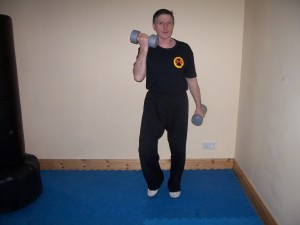Is it a Myth? Now that I’m over 40, My Metabolism is Slowing Down….
Does Metabolism change after Age 40?
Many of us believe in this myth that once we reach age 40 our metabolism dramatically slows down and we helplessly pile on the weight. Well the good news is that this is not strictly so. To understand what really happens we need to first understand what exactly is metabolism or metabolic rate and what are the factors that affect it.
 So what exactly is metabolism? This is hard to explain without getting scientific, but in layman’s terms, you can say your body is like an engine and in order for it to work, it needs fuel. This fuel comes in the form of the food. The food we eat is the fuel that gives us energy to do all our everyday activities, our thinking, and all our bodily functions. The more work or activity we do, the more fuel(energy) we need. This is our metabolism.
So what exactly is metabolism? This is hard to explain without getting scientific, but in layman’s terms, you can say your body is like an engine and in order for it to work, it needs fuel. This fuel comes in the form of the food. The food we eat is the fuel that gives us energy to do all our everyday activities, our thinking, and all our bodily functions. The more work or activity we do, the more fuel(energy) we need. This is our metabolism.
In more scientific terms our metabolism or metabolic rate is a measure of the rate your body uses up energy. This energy is measured in calories and you need a certain amount of calories every day to stay alive and carry out day to day activities. Your metabolic rate not only varies throughout the day but throughout your life depending on your level of activity and other factors. As you increase your activity, you increase your metabolism.
Your basal metabolic rate (BMR) describes the rate at which your body uses energy (also measured in calories) to keep just your bodily functions going when you are at rest. It is usually measured in the morning straight after you wake up and are still at rest, before having any breakfast.
We hear people (usually thin) loosely saying that they have a high metabolism and have the ability to eat a lot of food without piling on any weight. This may be so as we don’t all have the same metabolic rate and there are a number of factors that affect your BMR:
- Age. The BMR gradually decreases with age due to inactivity and lower muscle mass. The more muscle mass you have, the more energy you burn.
- Body fat percentage. A high body fat percentage decreases your BMR; a low body fat percentage increases it. If you reduce your body fat and increase your muscle mass, then you will increase your BMR.
- Sex. The BMR is generally a little lower in women than in men, generally because men have more muscle mass.
- Exercise. Systematic exercise will increase your BMR. As you exercise, you maintain or increase your muscle mass which in turn requires more energy.
- What you Eat. Prolonged deprivation from food will decrease your BMR. Many people think that depriving themselves (starving themselves for long periods of time) is the key to weight loss. But in actual fact you trigger your body to go into a survival mode which involves it shutting down your metabolism to a certain extent. This is why may people who crash diet end up piling on the weight again (yo-yo dieting) because they’ve ended up slowing down their metabolic rate in this process.
- Thyroid hormone. Poor thyroid functioning decreases your BMR. People with an underactive thyroid or who have had their thyroid removed have to control their thyroid levels artificially with drugs and this is a delicate balancing act. It is hard to get the levels right and medical practitioners are more likely to veer on less rather than too much thyroxin substitute, in order to prevent a hyperthyroid situation which could cause other complications.
- Stress Levels. High stress levels reduce your BMR.
- Dehydration. Inadequate water intake decreases your BMR.
- Sleep. Inadequate sleep over time will decrease your BMR.
Based on all of this, it stands to reason that a young, muscular, athletic person will have a higher basal metabolic rate compared to a middle-aged sedentary person who spends most of their time sitting down at a desk all day and who rarely engages in any form of physical activity.
 The good news is that it is not too late. Everybody has the capacity to get moving again and increase physical activity unless you have a debilitating disease or injury. What actually happens as we get older is that we become more sedentary and that is the main reason we lose muscle mass and therefore end up consuming far more calories than our body actually needs, resulting in piling on the weight.
The good news is that it is not too late. Everybody has the capacity to get moving again and increase physical activity unless you have a debilitating disease or injury. What actually happens as we get older is that we become more sedentary and that is the main reason we lose muscle mass and therefore end up consuming far more calories than our body actually needs, resulting in piling on the weight.
In conclusion, if you have hit 40, and you’ve always been active, the key is to maintain active. If the activities you have done in the past are unsuitable for you now, for example, you may have practised traditional martial arts as a child or young adult, but now find some of these activities hurt your joints, or you simply don’t have the flexibility to kick high!…then look for a more suitable alternative, in my case, I choose to train Taekwondo more moderately (I don’t have the same expectations of when I was 18!) and also practice some Tai Chi.
If you are age 40 and were never particularly active, then consider getting involved in an activity that will cause you enjoyment. Try not to think of it as exercise but as just ‘movement’ to keep you healthy.
At 40 you are not old! But it is time to take stock in order to prepare for later in life, so that you can age and continue to enjoy a healthy and active lifestyle.
Catarina Murphy, is a 3rd Degree Black Belt in Taekwondo and holds a Masters Degree in Physical Education with Loughborough University . Through her studies with Loughborough University, she gained expert knowledge about adult learning, personal development and how to research and improve teaching and coaching practices. She also did a lot of work on teaching martial arts to children, check out her blogs and past articles that she wrote for Budo BlackBelt UK magazine on this website.





I came across frankmurphysmasterclass.com and i love it !
arthritis treatment
http://arthritissymptomstreatment.blogspot.com/2012/10/what-is-arthritis_28.html